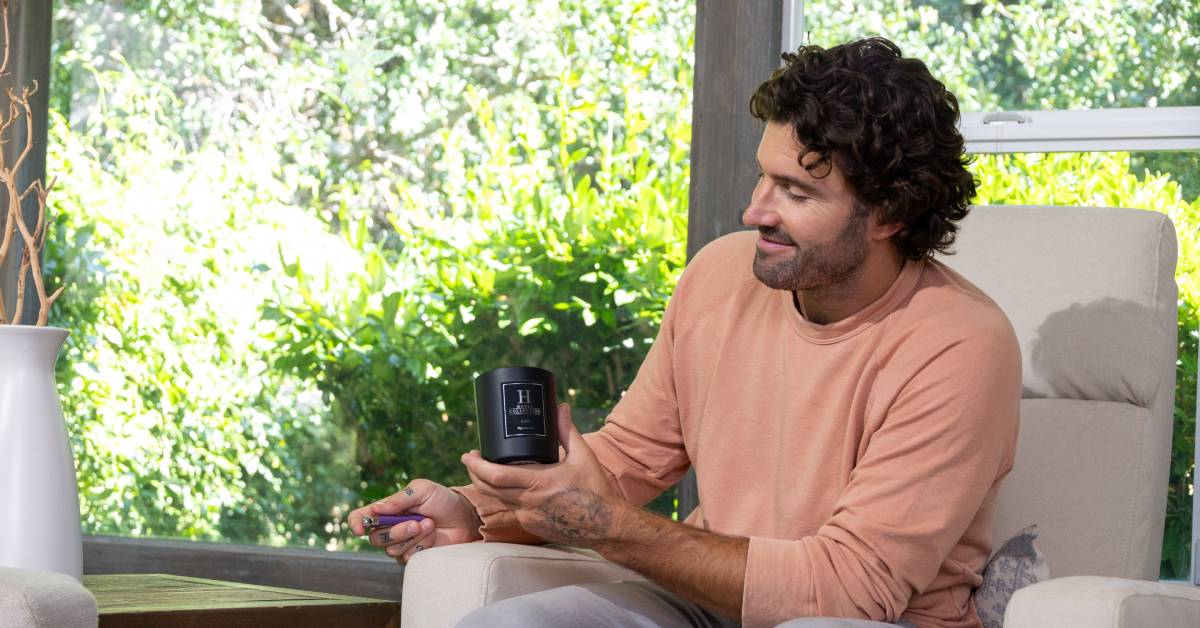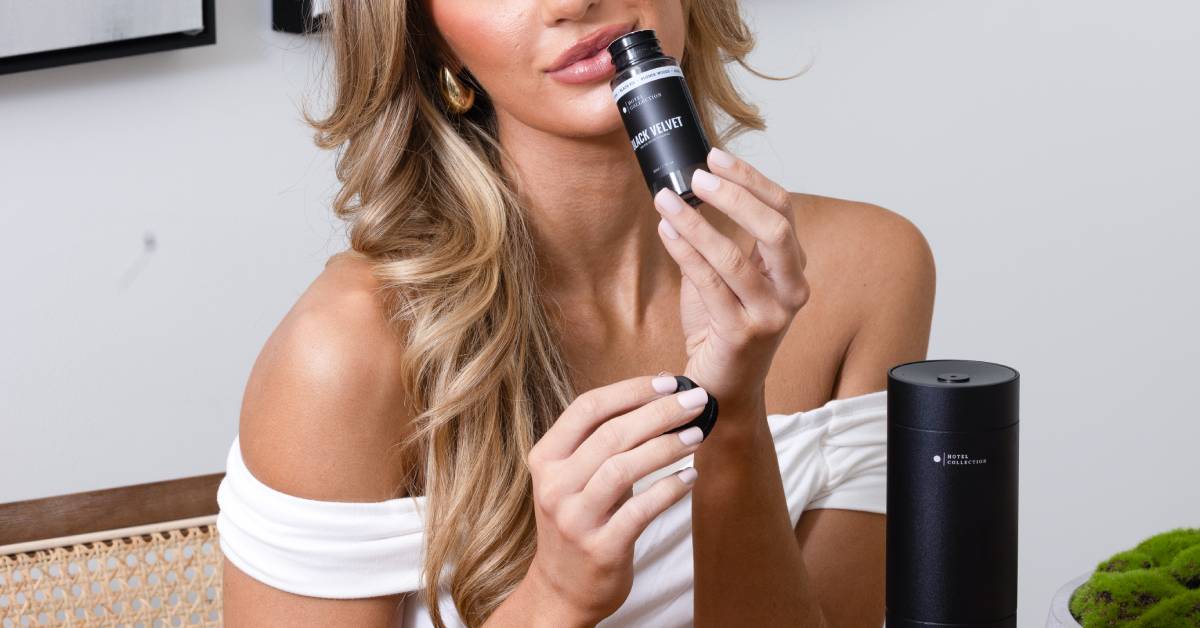Diffusing can not only freshen up a space, but add tiny healing molecules of essential oils into the air for both you and your pet to breathe in.
No matter what type of pet you have, Hotel Collection provides animal-safe scenting solutions for every home.
When in doubt, diffusers are the safest of all scent diffuser options to use around more delicate animals. Hotel Collection Diffusers break up scent molecules into a heatless, waterless nano-mist that disperses evenly throughout a room.
For safety purposes, we always recommend you keep diffusers and other scenting products far out of your pet’s reach. Please confirm the safety of ingredients with your vet before introducing fragrance products around sensitive pets.
Keep in mind that even miniscule amounts of essential oil can be toxic for certain pets, if not fatal, if ingested or their skin or fur comes in direct contact with it. Exposure can occur from licking and oral ingestion, absorption by skin contact, or inhalation from oil diffusers
Dogs
These sturdy companions can handle diffused fragrances in all forms. To ensure your diffuser or candles do not get knocked over, keep scenting products far away from the edges of countertops and tables.
Cats
Because cats have sensitive skin and a keener sense of smell than humans, they are at an increased risk of reaction from exposure to certain ingredients.
The most toxic ingredients for cats are cinnamon, citrus, pennyroyal, peppermint, pine, sweet birch, tea tree, wintergreen, and ylang ylang. Both ingestion and skin exposure can be toxic, so keep essential oils out of reach from curious cats. To ensure your diffuser or candles do not get knocked over by your cat, keep scenting products far away from the edges of countertops and tables.
Birds
A heatless, waterless scent diffuser is one of the best ways to introduce essential oil blends into an avian household or environment. Use extreme caution with feathered friends! Prior to the use of any essential oil based product in a bird, a thorough veterinary examination, by an avian veterinarian, is highly recommended.
For the first 10 minutes of diffusion, keep an eye on your bird(s) and their behavior, especially if your bird is new to a particular blend or essential oils in general. You can increase the concentration and frequency gradually, to ensure the safety of your pet.
Their gentle lungs cannot handle the toxins from gasses like carbon monoxide, smoke from tobacco products, fumes from new carpets and furniture, air fresheners, scented candles, paints, glues, household cleaning products, mothballs, hair spray, and nail polish. Lit candles should also always be kept in a separate room. If placed in the same room, be sure to maintain proper air flow in your home including the use of fans and keeping windows open.
Small Mammals (Rabbits, Chinchillas, Ferrets, & Rodents)
Smaller pets often have more delicate respiratory systems than dogs and humans. Keep a distance of at least six feet from pet enclosures. If your animals free-roam in your home, be sure to keep open-flame scenting products out of reach or do not use them while handling your pet.
Begin a gradual routine with your scenting accessories the safety of your pet.
Reptiles, Snakes, & Amphibians
These animals, as well as birds, have the most delicate respiratory systems out of all pets. If possible, always scent in another room or maintain good airflow. You can gradually introduce scent diffusion while ensuring their safety.
Begin a gradual routine with your scenting accessories the safety of your pet.
Fish & Aquatic Tank Pets
Scenting accessories should not directly impact water quality in fish tanks and other tank pets. However, do not put diffusers or candles directly near open-top tanks. Keep a distance of at least six feet.
Farm Animals (Sheep, Horses, Cows, Pigs, & Goats)
Similar to dogs, barn animals should be good to go when it comes to scenting! They are relatively sturdy animals and their lung capacity is most similar to ours and dogs.


















